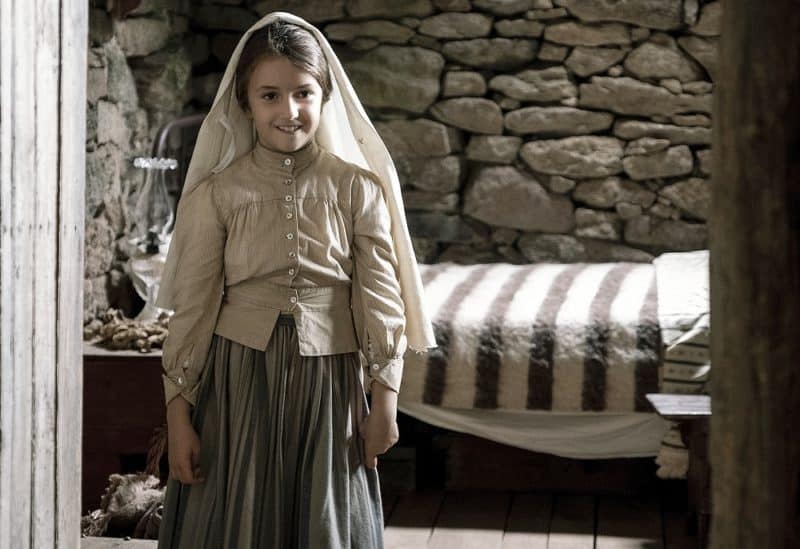by NEVIL GIBSON
When faced with a story of faith and miracles, moviemakers are likely to steer a middle course between scepticism and belief.
While overtly Christian films are readily accepted as mainstream fare these days – recent examples include Risen, Son of God, The Nativity Story – those based on miracles face tougher hurdles of audience credibility.
Medical cures, in particular, have to contend with scientific explanations, and the reality that no number of prayers will always produce a positive result.
Another is whether or not God can be blamed for destructive events, such as war. World War I, or the Great War, as it was called at the time, had patriotic Christians on both sides.
Historians looking back today can agree it was avoidable if political responses to an assassination in Sarajevo had been different. But conflict occurred, and the great powers of Europe found plenty to regret afterwards.
Of lesser concern was the effect on smaller and less powerful countries such as Portugal, where the largely rural and illiterate male population became cannon fodder.
In 1917, the casualties were mounting, and their names were read out in local villages to uncomprehending loved ones.
This is the context for appearances by an angel and the Blessed Virgin Mary to three young shepherds, Lucia Santos and her cousins Francisco and Jacinta Marto, at Fatima, south of Lisbon.
In six appearances, on the thirteenth day of each month from May to October, 1917, Mary reassuringly talks of the war coming to an end if the rosary is said. Lucia is also told she will have a long life, but the two younger ones won’t.
In fact, Lucia became a nun and lived to 97, devoting much of her time to writing memoirs and explanations, while the young cousins died in the 1918 Spanish flu epidemic.
Origin Entertainment, the California company behind Fatima (Rialto Distribution), bought the rights to remake Hollywood’s The Miracle of Our Lady of Fatima (1952).
Typically, 1950s religious films were reverential and unquestioning about miracles. The remake updates that view by introducing a professor (Harvey Keitel), who interviews Lucia in her 80s (played by Sonia Braga) to better understand her visions.
She carefully deflects his sometimes naïve approach to faith, though his questions would be familiar to unbelievers.
The social and political context is better explained, contrasting the children’s defiant defence of their experiences, and the large following they attract, against demands to recant by both Church and civil authorities.
Though filmed in English on location in Portugal, the cast and production crews are mainly European, led by Italian director Marco Pontecorvo, son of Gillo, famous for The Battle of Algiers (1966) and Burn! (1969).
Today, the shrine of Fatima attracts some six million pilgrims annually (in normal years) and remains an important source for its message of faith and peace.
Rating: General audiences. 113 minutes.
CLIPS
Tenet
(Warner/Roadshow)
Few directors command as much admiration as Christopher Nolan when it comes to big-budget blockbusters (Inception, Dunkirk). His latest pushes the barriers of narrative further than most, while delivering high-octane action sequences. Untypically, Nolan is old school in capturing everything on film, rather than digitally creating them with computer graphics. This adds vastly to the on-screen experience, which mixes elements of James Bond adventures with Ridley Scott storytelling. The unique proposition is time inversion, captured in the palindromic title. Some of the key characters are agents for Tenet – an organisation trying to stop a Russian arms dealer from blowing up the world – who can move forward and backward in time. Occasionally, they may meet their future or past selves, though they die if they connect. The keynote action scenes have elements of both, with vehicles (including a jumbo jet) and buildings crashing and then re-assembling; bullets being fired and reversing; explosions and people doing likewise. This is moviemaking at its most spectacular, as the soundtrack asserts itself over the frenetic and redundant dialogue. Nolan’s script adds a few in-jokes, such as “don’t try to understand this” or “does your head hurt yet?” to comfort those who can’t keep up. A bonus for Kiwis is a brief taste of America’s Cup racing on the Mediterranean.
Rating: Mature audiences. 150 minutes.
The Eight Hundred
(CMC)
Chinese director Guan Hu’s war epic has parallels with Dunkirk as a victory-in-defeat episode when Japanese forces captured Shanghai in 1938. The international city still had foreign-controlled zones after most of the Nationalist forces moved inland. The surrender was a major setback, but the bravery of some 400 motley soldiers and deserters – not 800 as claimed – defending a warehouse is considered a propaganda victory for Chinese nationalism that continues today. The warehouse was across the Suzhou river from the British concession, a neon-lit pleasure zone compared with grim street fighting on the other side. The contrast is highlighted by foreign media having a ringside seat to observe events the Nationalist government hoped would raise the sympathy and ire of the world community. This is a Hollywood-standard blockbuster, helped by some of the industry’s top stunt and special effects experts, such as Australia’s Glenn Boswell (The Hobbit, Mortal Engines).
Rating: Restricted to audiences over 13. 148 minutes.
Proxima
(Madman)
Feminist French space dramas don’t come along often – the most recent was Clair Denis’s High Life – and exposure has been limited. But this is now available from local VOD (video–on–demand) services that have thrived since Covid-19. Eva Green (The Luminaries) plays an astronaut training for a Mars mission that pushes her to physical and psychological limits. Most space movies skip over the downsides, but these are the main focus for director Alice Winocour (Augustine). It’s obvious that women, least of all a mother, are tolerated, but not welcome, in a world where even the most macho men find difficulty coping with the effects of extended periods in space. One training session shows how a weakened body needs an exoskeleton to stay mobile.
Rating: Mature audiences. 119 minutes.

Reader Interactions